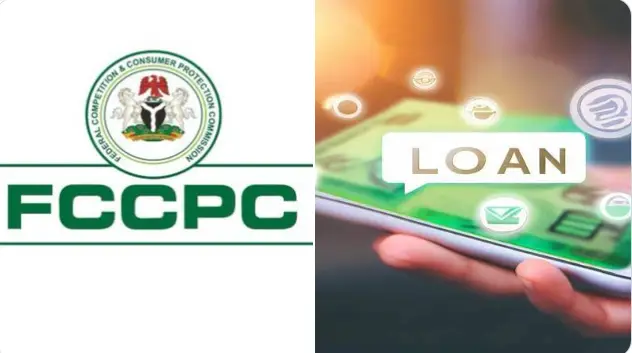
By Our Reporter
The Federal Competition and Consumer Protection Commission (FCCPC) has declared war on rogue loan apps and businesses using fear, threats, and intimidation to squeeze money out of desperate Nigerians.
In a fiery statement, the consumer watchdog thundered: “No consumer should live in fear because of unpaid loans.”
The warning comes after a wave of public outrage over the dirty tricks of online lenders who have turned debt recovery into a campaign of cyberbullying, blackmail, and data abuse.
Loan Sharks Masquerading as Apps
Across Nigeria, digital lending apps have mushroomed, offering “instant loans, no collateral” with just a few clicks. But the dream of easy cash has turned into a nightmare for thousands.
Borrowers have reported:
* Late-night threatening calls.
* Contacts being spammed with “shame messages.”
* Public defamation and abusive language.
* Unauthorized access to private photos and data.
“It’s like being hunted,” cried a victim in Lagos. “They made my friends and family believe I was a criminal just because I delayed repayment.”
FCCPC Fights Back
The FCCPC insists it has zero tolerance for such tactics. A spokesperson vowed:
“Debt recovery must never involve harassment or intimidation. Borrowers have obligations, but lenders must respect dignity, privacy, and the law.”
The commission urged Nigerians to report every case of harassment, providing screenshots, recordings, or messages as evidence. Complaints can be lodged on the FCCPC portal, via email, or through hotlines 0805-600-2020 and 0805-600-3030.
Past Raids, Future Battles
This isn’t the FCCPC’s first showdown with loan app predators.
* In 2022 and 2023, the agency launched Operation Stop Loan Sharks, raiding shady offices, freezing accounts, and forcing Google to delist illegal apps.
* Loan companies are now required to register, disclose owners, and comply with data protection laws.
* Blacklisted apps have been yanked offline, but fresh ones keep popping up under new names.
“It’s a cat-and-mouse game,” admitted one consumer rights activist. “These companies keep reinventing themselves, but the harassment remains the same.”
Why Nigerians Keep Borrowing
Despite the danger, millions still flock to loan apps. With inflation soaring, jobs vanishing, and banks demanding impossible collateral, many see digital lenders as the only way out.
“Banks frustrate you with paperwork,” said an Abuja student. “Loan apps give cash in minutes. You know it’s a trap, but hunger doesn’t wait.”
But the convenience comes at a high price: sky-high interest rates, hidden charges, and repayment windows so short they push borrowers into a vicious cycle of debt and humiliation.
Consumer Rights at Stake
The FCCPC reminded Nigerians that the law is on their side. Under the FCCPA 2018, every consumer is entitled to:
* Fair treatment and dignity.
* Protection from unfair practices.
* Privacy and confidentiality of data.
* Honest information about services.
Apps that break these rules face fines, suspension, or even prosecution.
The Way Forward
Experts say it’s time to strike a balance: borrowers must repay debts, but lenders must stop acting like digital thugs. Proposed solutions include:
* Credit bureau reporting instead of public shaming.
* Flexible repayment plans.
* Automated reminders that respect privacy.
The FCCPC says it will keep hammering offenders, but it needs consumers to speak up.
“Report them. Don’t stay silent,” the commission urged. “Together, we can end this culture of fear.”






